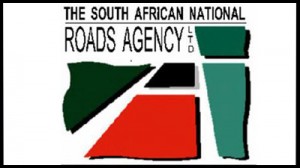Geneva – The World Health Organisation has authorised the use of experimental drugs to fight Ebola as the death toll increases.
A 12-member ethics panel convened by the United Nations health agency has reached “unanimous consensus” that it is ethical to treat Ebola patients with experimental drugs to counter the largest, most severe and most complex outbreak of the virus in history.
“There was unanimous agreement among the experts that in the special circumstances of this Ebola outbreak it is ethical to offer unregistered interventions as potential treatments or prevention,” UN World Health Organization (WHO) Assistant Director-General for Health Systems and Innovation, Marie-Paule Kieny, told a press conference in Geneva.
The WHO, in a statement on the outcome of the two-day Emergency Committee of experts, said that “over the past decade, research efforts have been invested into developing drugs and vaccines for Ebola virus disease. Some of these have shown promising results in the laboratory, but they have not yet been evaluated for safety and efficacy in human beings”.
Dr Kieny said several of these treatments have proven to be very effective in non-human primates – monkeys – but none have been tested on humans. Currently, there are no licensed treatments or vaccines for Ebola.
At the UN Headquarters in New York, Secretary-General Ban Ki-moon designated David Nabarro as the Senior UN System Coordinator for the Ebola Virus Disease. In a press encounter, he called on the international community to respond urgently to the shortage of doctors, nurses and equipment, including protective clothing and isolation tents, saying: “We need all hands on deck.”
He also made an appeal to avoid panic and fear, stressing that “Ebola has been successfully brought under control elsewhere, and we can do it here, too”.
Meanwhile, WHO said in its latest update of the current Ebola outbreak in West Africa that between 7 and 9 August, a total of 69 new cases and 52 deaths were reported from Guinea, Liberia, Nigeria, and Sierra Leone, bringing the total numbers of cases to 1 848 with 1 013 deaths.
WHO has posted Ebola response videos on YouTube and is also seeking to counter the “many barriers stand in the way of rapid containment”.
“Fear is proving to be the most difficult barrier to overcome Ebola. Fear causes contacts of cases to escape from the surveillance system, families to hide symptomatic loved ones or take them to traditional healers, and patients to flee treatment centres.
“Fear, and the hostility it can feed, have threatened the security of national and international response teams,” the UN agency added.
WHO has declared the current Ebola outbreak an international public health emergency. The large number of people affected by the 2014 West African outbreak, and the high case-fatality rate have prompted calls to use investigational medical interventions to try to save the lives of patients and to curb the epidemic.
In this context, WHO convened a virtual consultation of researchers, ethicists, and patient safety advocates from around the world to consider and assess the ethics surrounding the use of therapies when safety is unproven, ethics governing priority setting for access to these therapies and principles for fair distribution.
“Ethical criteria must guide the provision of such interventions. These include transparency about all aspects of care, informed consent, freedom of choice, confidentiality, respect for the person, preservation of dignity and involvement of the community,” WHO said.
The Ebola virus is highly contagious, but is not airborne, according to UN experts. Transmission requires close contact with the bodily fluids of an infected person, as can occur during health-care procedures, home care, or traditional burial practices, which involve the close contact of family members and friends with bodies.
The incubation period ranges from 2 to 21 days, but patients become contagious only after the onset of symptoms. As symptoms worsen, the ability to transmit the virus increases. As a result, patients are usually most likely to infect others at a severe stage of the disease, when they are visibly, and physically, too ill to travel
Read more here: http://www.who.int/mediacentre/news/statements/2014/ebola-ethical-review-summary/en/








